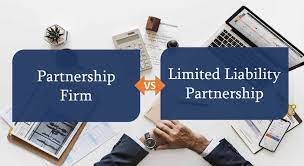User Intent
Users searching for information about LLP (Limited Liability Partnership) partners’ liability for debts want clarity on whether partners are responsible for the firm’s financial obligations. This article provides a comprehensive breakdown of their legal responsibilities, benefits, limitations, and comparisons to other business structures.
Introduction
When forming a business, choosing the right structure is crucial. Among various options, an LLP (Limited Liability Partnership) offers a unique mix of flexibility and legal protection. However, a common concern arises: Are LLP partners liable for the firm’s debts? This article explores this question in detail and provides a clear understanding of the legal framework, benefits, and drawbacks.
Definition of LLP and Partner Liability
An LLP is a hybrid business structure combining elements of a partnership and a corporation. Unlike traditional partnerships, LLPs protect partners from being personally liable for business debts beyond their capital contributions. In simple terms, the LLP itself is a separate legal entity responsible for its debts and obligations.
In an LLP, partners’ liability is typically limited, meaning they are not personally responsible for the firm’s debts unless they have signed a personal guarantee or engaged in fraudulent activities.
Application of Partner Liability in LLPs
Understanding how partner liability applies in real-world scenarios is essential. Here’s how it works:
- Business Loans & Credit: Financial institutions lend money to LLPs based on their creditworthiness. Partners are not liable unless they personally guarantee the loan.
- Operational Debts: Vendors and service providers can sue the LLP for unpaid bills, but partners’ personal assets remain protected unless there’s proof of wrongdoing.
- Legal Compliance & Taxation: LLPs must comply with financial regulations. If partners fail to meet legal obligations like tax filings, the government may impose penalties on the LLP but not directly on individual partners.
- Misconduct or Fraud: If a partner commits fraud or negligence, they can be personally held liable. Courts can pierce the corporate veil in cases of deliberate wrongdoing.
For more Information visit this side: https://www.mca.gov.in
Benefits of Limited Liability in LLPs
Choosing an LLP comes with several advantages:
- Protection of Personal Assets: Partners are not personally responsible for business debts, safeguarding their homes, savings, and investments.
- Separate Legal Entity: An LLP can enter contracts, sue, or be sued in its own name, ensuring business continuity even if partners change.
- Flexible Business Structure: Unlike corporations, LLPs don’t have rigid rules on board meetings or complex management structures.
- Tax Benefits: LLPs are taxed as partnerships, avoiding double taxation that corporations often face.
- Credibility & Trust: An LLP structure enhances business credibility, making it easier to secure funding and build partnerships.
Limitations of LLP Liability Protection
Despite its advantages, LLPs have some drawbacks:
- Liability in Certain Cases: If partners provide personal guarantees for loans or engage in fraud, they can be held accountable.
- Complex Registration & Compliance: Compared to sole proprietorships or general partnerships, LLPs have stricter compliance requirements.
- Limited Growth Potential: Unlike corporations, LLPs cannot raise funds through stock issuance.
- Dissolution Challenges: If a partner exits or the LLP fails, dissolution can be complex and costly.
- Not Suitable for All Businesses: Industries that require large-scale funding or shareholder investments may find LLPs unsuitable.
Comparative Table: LLP vs. Other Business Structures
| Feature | LLP | General Partnership | Private Limited Company | Sole Proprietorship |
|---|---|---|---|---|
| Personal Liability | Limited | Unlimited | Limited | Unlimited |
| Legal Entity | Separate | Not separate | Separate | Not separate |
| Taxation | Pass-through | Pass-through | Corporate Tax | Individual Tax |
| Compliance Requirements | Moderate | Low | High | Minimal |
| Investment Attraction | Medium | Low | High | Low |
| Suitable for Large-Scale Business? | No | No | Yes | No |
Conclusion
Understanding whether LLP partners are liable for debts is essential before forming a business. In general, LLPs protect partners from personal liability, making them a safer choice than general partnerships. However, exceptions exist, particularly in cases of personal guarantees or fraudulent activities. While LLPs offer flexibility and tax benefits, they also have limitations that must be considered based on business needs.
For entrepreneurs seeking a balanced approach between liability protection and operational ease, LLPs are a strong option. However, legal consultation is advisable to understand the specific obligations based on the jurisdiction and industry requirements.
FAQs
- Are LLP partners personally liable for business debts?
No, unless they have given a personal guarantee or engaged in fraud. - Can creditors sue individual LLP partners?
Generally, no. Creditors can only sue the LLP as a separate legal entity. - What happens if an LLP fails to pay its debts?
The LLP’s assets will be used to settle debts, but partners’ personal assets remain protected unless fraud is involved. - How does an LLP differ from a general partnership?
In a general partnership, partners have unlimited liability, whereas LLP partners have limited liability. - Can an LLP be converted into a private limited company?
Yes, many jurisdictions allow conversion under specified regulations. - Is an LLP suitable for startups?
Yes, particularly for professional services firms and small businesses seeking liability protection without the complexity of a corporation.

For further details access our website: https://vibrantfinserv.com

